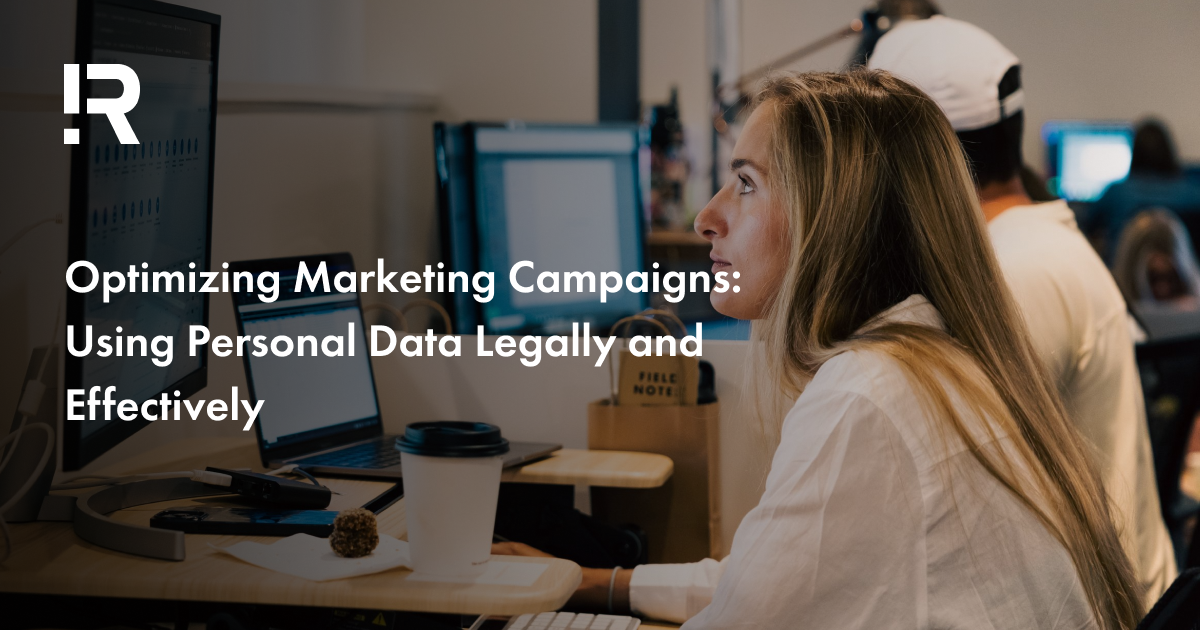1. Personal data types and lawful methods of collecting personal data
Personal data, according to Decree No. 13/2023/ND-CP, is information relating to a specific individual that aids in identification, recognition, or communication with that individual. Personal data is divided into two categories: basic personal data and sensitive personal data.
Basic personal data, such as a person's name, contact information, family details, and etc, are used to directly identify that person. Sensitive personal data includes information that is closely related to an individual's privacy rights, such as political opinions, religion, health status, preferences, web browsing habits, and etc.
Businesses can collect personal information from a variety of sources, including:
- Website: Using website analytics tools to track and analyze traffic, bounce rates, conversion rates, user behaviors, etc. on their website.
- Social media: Using social media platforms such as Facebook, Instagram, LinkedIn, and Twitter to collect information about users such as age, gender, location, interests, opinions, and etc. Monitoring and analyzing the effectiveness of marketing campaigns on these platforms.
- Email: Using email to send marketing messages to users, such as newsletters, promotions, product introductions, and etc. Tracking and analyzing open rates, click-through rates, unsubscribe rates for these emails.
- Mobile applications: Using mobile apps to provide users with services and products such as ordering, payment, and delivery. Obtaining user information such as location, device, operating system, app version, etc.
Vietnam has a large amount of personal data due to its over 77 million internet users (79.1% of the population). However, when collecting personal data, businesses must follow legal regulations and ethics, according to Decree No. 13 on Personal Data Protection in Vietnam, which was issued on July 1, 2023.
Decree No. 13 is similar to global data protection laws such as the European Union's General Data Protection Regulation (GDPR) and the California Consumer Privacy Act (CCPA). All of these laws require businesses to obtain user consent before collecting and processing personal data, and to secure and safeguard this data against risks and breaches. Additionally, businesses must allow users to access, modify, delete, and transfer their data.
Businesses should follow ethical principles when collecting and using personal data in addition to adhering to legal regulations. For example, the principles of fairness, transparency, and accountability.

2. Analyzing and using personal data to create effective marketing strategies
Businesses analyze and use collected personal data to develop effective marketing strategies. Some common methods are:
- Behavior analysis: Analyzing user behavior across marketing channels such as websites, social media, email, and mobile apps. Behavior analysis aids businesses in understanding what their customers do, want, care about, and require. This data is then used to generate relevant and compelling marketing messages.
- Segmentation analysis: Analyzing user characteristics such as age, gender, location, interests, opinions, etc. Businesses can use segmentation analysis to identify their target audience groups, allowing them to personalize marketing strategies for each group.
- Interaction analysis: Examining the level of user interaction with the company's marketing strategies, including metrics such as open rates, click-through rates, conversion rates, etc. Interaction analysis enables businesses to assess the effectiveness of their marketing strategies, allowing them to adjust and improve them.
Using analytics tools is the most efficient way for businesses to analyze data, yielding specific results, insights, and actions. However, not all analytics tools comply with personal data protection laws and meet every business requirement. It is difficult to find a tool that meets all three criteria: legal compliance, campaign optimization, and meeting requirements related to objectives, budget, data sources, and channels, especially in the context of the relatively new Decree No. 13.

3. Optimize marketing strategies with R Digital's advanced technology
R Digital is a specialized company that offers digital services and pioneers digital solutions for protecting user data. R Digital's innovative products and solutions are focused on ensuring that businesses operate legally and effectively. AesirX Analytics is a legitimate website analysis tool that R Digital has developed to help businesses comply with Decree No. 13 and optimize their marketing campaigns.
AesirX Analytics can replace Google Analytics by providing accurate analysis and statistics that help businesses measure website effectiveness in order to improve marketing plans and personalize customer experiences.
AesirX Analytics only uses data from first-party sources, such as website visitor data, behavioral data, tracking data, registration data, and etc. This type of data is the most valuable because it is gathered directly from the company's target audience. As a result, making predictions and forecasting future behavioral trends becomes more reliable.
What distinguishes AesirX Analytics from other website analysis tools is its "Shield of Privacy" functionality, which assists businesses in notifying and obtaining consent from users prior to collecting and processing their behavioral data.
Web3-based Identity Management ensures businesses are legally compliant while collecting and using personal data. It is used on websites that use AesirX Analytics to ensure legal compliance with personal data usage while also improving analysis efficiency.
Users can now access AesirX Analytics via the following packages:
- Community: $27/month
- Starter: $120/month
- Team: $420/month
- Growth: $750/month
- Enterprise: Custom
Personal data is considered a valuable asset for optimizing marketing strategies. To utilize it effectively and legally, businesses need proper data collection, analysis methods, and a Consent Management Platform to ensure compliance. Tools like AesirX Analytics support lawful data processing and enable advanced data analysis while respecting user consent.
Sources:
- Digital 2023: Vietnam
- 13/2023/ND-CP in Vietnam, Decree Protection of Personal Data
- New Decree on Protection of Personal Data in Vietnam and Comparison with GDPR




